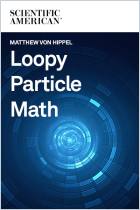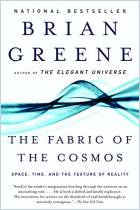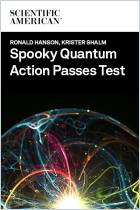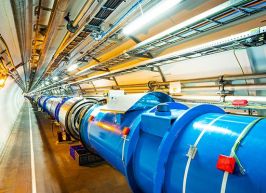
Going Nowhere Fast
After the success of the Standard Model, experiments have stopped answering to grand theories. Is particle physics in crisis?
Recommendation
Science never seems to get a chance to rest on its laurels. In 2012, experiments at the Large Hadron Collider (LHC) at CERN demonstrated the existence of the Higgs boson, the last particle predicted by the Standard Model of particle physics. The problem is that, while the Standard Model explains how the particles behave, it doesn’t explain why they should be the way they are. Physicists had hoped that “supersymmetry” would give them some answers, but data from the LHC is disappointing. Undaunted, physicists are groping their way towards a more comprehensive explanation.
Summary
About the Author
Ben Allanach is a professor in the department of applied mathematics and theoretical physics at the University of Cambridge. Along with other members of the Cambridge Supersymmetry Working Group, his research focuses on collider searches for new physics.

















Comment on this summary or Diskussion beginnen